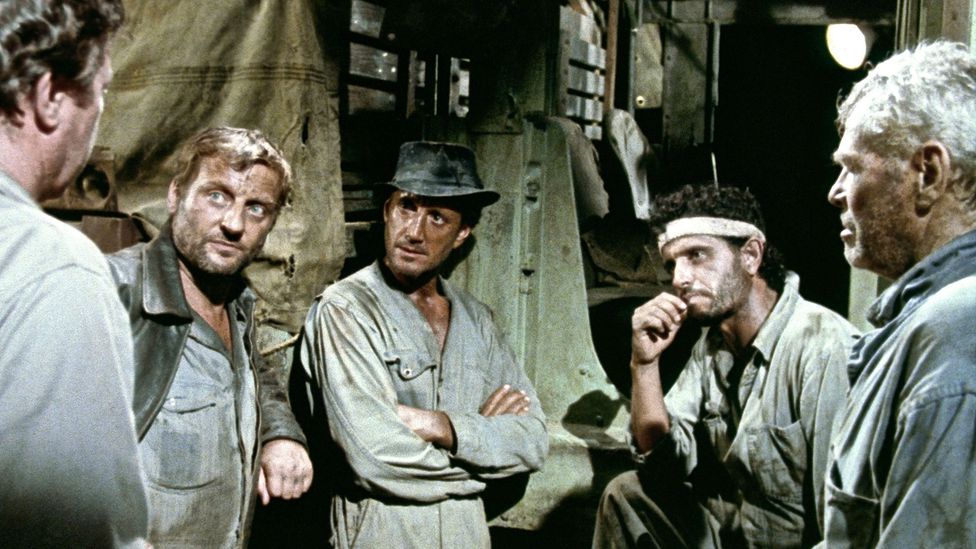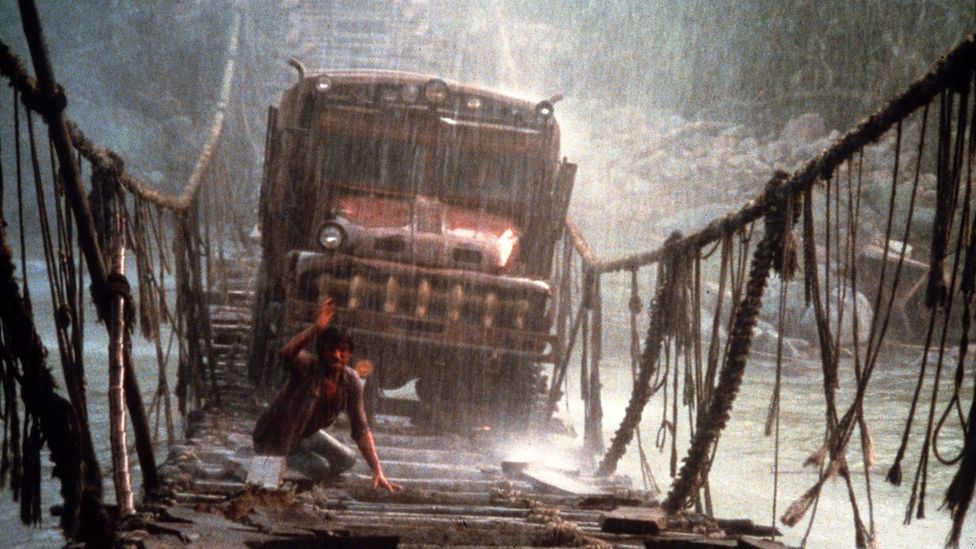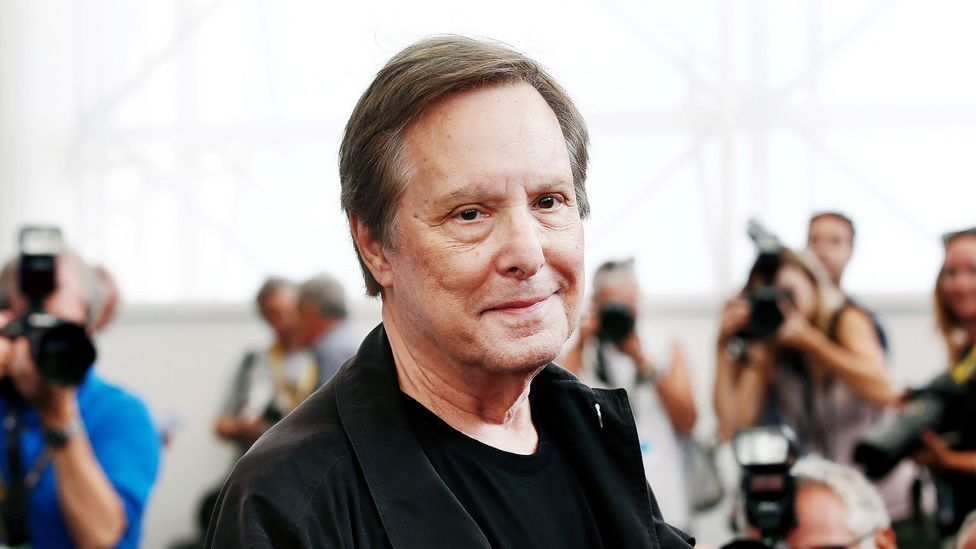William Friedkin’s flop masterpiece

Following news of the loss of filmmaker William Friedkin this week, aged 87, social media seemed to be in rare relative agreement about the greatness of an artist’s body of work. The legendary director of The Exorcist (1973) and The French Connection (1971) had not made a feature film for over a decade (the last was the gloriously sleazy Killer Joe, in 2011), but was due to premiere a new one later this month at the Venice Film Festival.
More like this:
– Why 1971 was an extraordinary year in film
– The 70s coming-of-age film that is a classic
– 10 of the best films to watch in August
No matter: his back catalogue is enough to keep film buffs and cultural commentators talking endlessly. The praise and conversation around this giant of US cinema has, of course, come for a sad reason. But it has also emphasised the fact that he had sparkling gems within his filmography that were never properly appreciated in their era – not least his once-maligned 1977 film Sorcerer, which was his own favourite of his works.

Sorcerer tells the story of a group of criminals on the run – on a foolhardy mission to transport some nitroglycerine (Credit: Alamy)
An ambitious, budget-busting adventure-thriller set in a South American oil refinery town and its surrounding mountainous jungle, Sorcerer was intended as a loose remake of Henri-Georges Cluozot’s undisputed 1951 classic Wages of Fear. It was also well-poised to be a gargantuan flop when it was released the same summer weekend as George Lucas’ much more straightforward blockbuster Star Wars.
But that box office battle belied the spellbinding, strange, existential thriller itself: it was a terse, brilliantly hewn film, made with hard graft and featuring real rainforest exploits, soaked in endless tropical rain and humid sweat. It also had a fatalistic spirit that made it the most seventies of 70s movies (ie there were no requisite narrative resolutions, never mind happy ones.)
A masterclass in tension
The tense story – as with Wages of Fear – is of criminals on the lam who go on what may well be a suicide mission to transport a truck full of highly explosive nitroglycerine down a treacherous road.
The opening prologues of the film take us to New Jersey, where Jackie Scanlon (Roy Scheider, Jaws star and the closest to a big Hollywood name the film had) is involved in the heist of a local church; Paris, where Victor Manzon (Bruno Cremer) is a banker involved in business fraud and on the verge of being ruined; Mexico, where Nilo (Francisco Rabal) is a mysterious hitman, and Jerusalem, where Kassem (Amidou), a terrorist, has blown up a bank. As a result of their misdeeds, all four have ended up in the remote Colombian village of Porvenir, and when there is an explosion at the local oil refinery and dynamite is needed to quell the continuous fire, the adventure of the story begins.
With combined funds from both Paramount and Universal Studios, Friedkin – who was essentially given carte blanche after the astronomical box office success of The Exorcist – marched into the jungles of the Dominican Republic, sometimes halting production to literally build roads through the wilderness. Various crew members were bed-ridden with malaria and other tropical maladies, and the unpredictable weather led to costly delays.

The film’s highlight is an incredible action sequence in which the truck full of explosives is driven across a wonky rope bridge (Credit: Alamy)
The budget soon spiralled out of control from a projected $15 million to $22 million, largely due to Friedkin’s insistence on location shooting and documentary-style realism. He later expressed regret on insisting on these practical things, rather than focusing the film’s spending on the A-list international cast he originally planned for, with the iconic Steve McQueen set to star before a clash over location shooting made him drop out.
With neither a straightforward plot nor a hugely bankable film star, it earned back just $9m overall. A new crop of films in the mould of its box-office rival Star Wars – ancillary-market friendly, with more clear-cut good v evil narratives, and the potential to rake in huge international profits – were now in favour.
Why it would never be made today
However as expensive and impractical as they were, the tactile effects the film produces make it a breathtaking viewing experience today. Unlike the more blatantly artificial SFX of a film like Star Wars, you get the sense that there’s genuine physical jeopardy in Sorcerer. With a thrumming, synthesiser-laden Tangerine Dream soundtrack that provides sinister emphasis to the madness of the undertaking, Fredkin’s film is also grippingly stylish.
What’s more, it rewards a viewer’s patience. For contemporary attention spans, it may be something of an ask to wait about half a film’s runtime before things really rev into action (bar some flashbacks to the past criminal lives of the four protagonists). But once it does, it builds to one of the most thrilling action sequences of its time, as the truck full of explosives attempts to cross a fraying rope bridge in a violent thunderstorm.
But combined with that muscular action, there’s also the sheer cynicism of it all: there’s little narrative motivation or backstory for the unlikeable main characters, who sit shifty-eyed in dilapidated village bars. Are they seeking a form of redemption or do they simply have nothing to lose? Friedkin excelled at taking genre films, be they horror or action-thriller, and suffusing them with genuine philosophical enquiry.

Right up until his most recent feature film, 2011’s Killer Joe, William Friedkin remained a maverick auteur (Credit: Alamy)
In addition to that, there’s the matter of the oil company’s presence in the film: one of unmitigated negative impact. As Sorcerer’s screenwriter Walon Green said at the time of its release, they had set out to create “a real movie about what we thought was the reality of Latin America and the presence of foreigners there today”. This was an anti-imperialist tract, and made, in delicious irony, by Paramount, who had not long before been purchased by Gulf & Western: an oil company. (Friedkin included a photo of the Gulf & Western board in the film, in case you had any questions about his position.)
The fact remains that Friedkin’s work – right up to Killer Joe, but certainly most pointedly in the case of Sorcerer, given its pivotal timing and fate – has come to represent something like a path less taken in American filmmaking. Along with similarly auteur-driven, ill-fated passion projects from the same period like Michael Cimino’s Heaven’s Gate, Martin Scorsese’s New York, New York, and Francis Ford Coppola’s One from the Heart, it would sadly signal the death knell of one of the most fertile creative periods of Hollywood history.
Sorcerer and its cohort were complex, morally ambiguous, maintaining the courage of their artistic convictions: the antithesis of what we see in so much Hollywood cinema today, saturated as we are with postmodern superhero films and endless reboots of existing IP. In an alternate universe (that I would quite like to occupy), Sorcerer never would have to be re-discovered, but would have been canonised from the start for the unwieldy and individual vision it represents. Instead it remains a shining example of a fork in the road of American film. Its uniqueness shows what made William Friedkin a great artist and an uncompromising one to the last.
If you liked this story, sign up for the weekly bbc.com features newsletter, called The Essential List. A handpicked selection of stories from BBC Future, Culture, Worklife and Travel, delivered to your inbox every Friday.
If you would like to comment on this story or anything else you have seen on BBC Culture, head over to our Facebook page or message us on Twitter.








